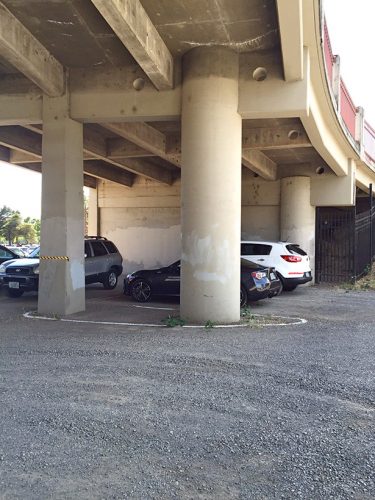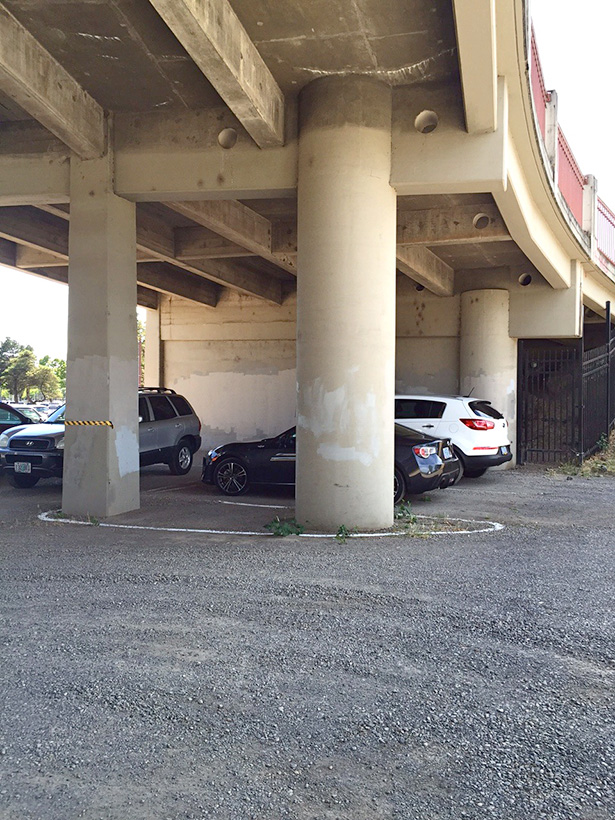
A fenced-in parking lot complete with stripes on the gravel has appeared at the site of the leveled City Hall downtown, leading passers-by to wonder what’s going on. Turns out the parking will not be for the public or even the architects and engineers working on plans for the new City Hall.
“We had a request from the Federal Courthouse to accommodate overflow parking for jurors for two weeks,” says city spokesperson Laura Hammond. City Code 9.5800 “allows up to two weeks of temporary parking three times per year,” she says.
Normally, gravel parking lots are not permitted in downtown Eugene. New parking lots must have an impervious surface (paved with asphalt or concrete) and provide for drainage and adjacent features to cool and clean runoff before it hits the stormwater drains to the river. Gravel parking does not allow cleaning of oil spills and is a safety hazard for bicycles, wheelchairs, walkers and high-heel shoes.
Other gravel parking lots can be found around town, such as the peculiar lot under the Ferry Street Bridge, which seems to fall through the cracks in the code. Cars and trucks park wherever they can find space around the bridge pillars. Hammond says that site is “on the public right of way, which is considered an extension of the road, and therefore is not subject to the same land use code requirements.”
Other gravel parking areas might be “legal, non-conforming sites” as defined by Code 9.1220, Hammond says, or the property owner may have illegally created gravel parking. She says in order for the city to intervene, the city would need to receive a nuisance or zoning complaint. The city has a website for such complaints at wkly.ws/21q. Complaints can be confidential if requested.
Is there an upside to gravel parking lots? Maybe not, but permeable parking is getting a lot of attention around the country. Even the Environmental Protection Agency is experimenting with “green” parking lots that allow rainwater to seep into the soil and refresh aquifers, rather than adding to stormwater systems that can overflow during storms and lead to raw sewage pollution.
The city of Chicago has torn up many miles of paved alleys and replaced them with permeable surfaces in order to reduce polluted stormwater flowing into Lake Michigan. The city of Ashland has allowed permeable parking in certain areas for decades. Some small businesses mow their brick parking lots.
